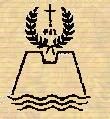|
THE FOUR
BEATITUDES - "The Poor"
In Matthew, Christ taught eight
Beatitudes; but, in Luke, He explained only four Beatitudes...though
He added four woes. These were two different occasions and
apparently two different audiences.
The Beatitudes are so overlapping
that all are contained in each other. And, as long as it is
explained well, it would not matter if there were three or nine
Beatitudes.
Who are the "poor"? Those
whose desire for the things of the world is zero. These people have
voluntarily made themselves "poor"...i.e. without any
desire for the things of the world so that they may increase their
desire for the things of heaven. Desire for the things of the world
cannot co-exist with the desire for the things of heaven.
"Friendship with the world is enmity with God." There is
no merit in being involuntarily poor.
The "poor" here
described, in fact, develop a hatred for the things of the world
because it prevents them from desiring the things of heaven. Those
who love the world usually love to spend their eternity here in the
world.
The "poor" are those who
practice voluntary poverty...which all must observe who would want
to progress in the spiritual life. Poverty is not only avoiding
desiring the things of the world but also must reach the point of
despising the things of the world. It is sometimes referred to as
detachment. It is like saying, if it comes fine, if it does not
come, it's fine just the same. Their affection is only for the
things of heaven; they have no affection for the things of the
world.
The whole spiritual life is built
on poverty. Externally, they seem to live poorly precisely because
they only use the things of the world that are needed for their
quest for holiness; everything else is laid aside. Making provisions
for food, shelter, and clothing, they seek nothing else. So they
look poor. But they have much and have merely voluntarily chosen to
live this way. This is voluntary poverty.
Poverty is having the basic
necessities and giving up those things in the world that simply give
delight.
And, again, the reason they have
voluntarily chosen to live this way is that they may be worthy of
the righteousness of God. Nothing in this life can satisfy man' s
longing, except virtue. And the reward of the poor? Theirs is the
kingdom of heaven.
This is the first test from God: if
you will continue to seek Him in an atmosphere of poverty.
* * *
THE FOUR
BEATITUDES - "The Hungry"
The "hungry" are those
who yearn for God's righteousness, i.e., what is right in the eyes
of God and not so much in the eyes of men.
Nothing in the world worries them;
neither what they shall eat nor drink. They are satisfied with
whatever they have. For God's righteousness is more important than
food and drink.
Such Christian souls never consider
themselves righteous but constantly aim at growing in
righteousness.
For those who desire righteousness,
an abundance of grace is promised.
The reason we live in poverty,
despising the things of the world, is to desire in a greater degree
the righteousness of God. For, being "hungry", we shall
certainly be satisfied; not only with spiritual food but also with
physical food. To be poor for any other reason than this is an act
of futility.
This is your second test: for you
to find out if you will continue to seek God alone without indulging
in the things of the world.
* * *
THE FOUR
BEATITUDES - "Those Who Mourn"
The poor hunger for God's
righteousness. But because they experience the great struggle
between the pull towards God on one hand, and the pull towards the
world on the other hand, they weep (or mourn), as a child who
desires a toy that he cannot possess would weep out of desperation.
The Christian "poor",
because of his "hunger" for God, mourns because he finds
himself chained by time, by his flesh and the world. These prevent
him from attaining his longing for heaven...thus, he mourns.
He "mourns" because of
the great effort needed to hate the things of the world. But this
godly "mourning" worketh unto repentance and salvation. By
this sorrow, the soul discovers his defects. And, like St. Paul, he
eventually "mourns" for the sins of others.
Such grief is the source of
gladness; "you shall laugh," not with the lips but with a
heart full of gladness unmixed with sorrow.
This is your third test: for you to
find out if you will continue to seek God amidst great
difficulties.
* * *
THE FOUR
BEATITUDES - "Those Persecuted"
If someone is
persecuted and hated because he has committed a crime, then he
deserves it.
Those who are blessed
are those persecuted and hated because they are obeying the
commandments of Christ.
Christians who are
"poor" because they "hunger" for God's
righteousness and, finding it difficult to attain it,
"mourn," begin to behave differently from the people of
the world. Such Christians loathe the things that worldly people
love and thus are disliked and hated by the lovers of the
world.
The world will
hate you because you hate the things they love and avoid doing the
things they do. You detest the things they look up to and run
away from the things they run to.
In their hatred, the
world will call you evil while they wallow in the mud of their
self-righteousness. Such people can hate you but they cannot harm
you.
This is your fourth
test: for you to find out if you will continue to seek God even if
the world tries to stop you.
Blessed Theopylact
(08-06-02)
| 